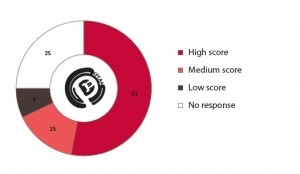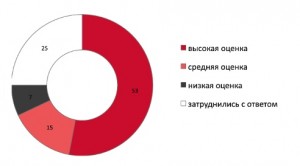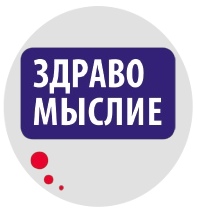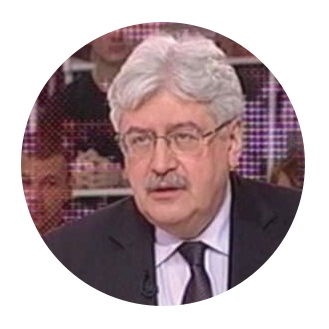How do Russians assess the activities of the Patriarch Cyril?
07/20/2011The results of the All-Russian representative survey conducted by the service SREDA (field work: Public Opinion Foundation “PENTA”, sample 1500 people)
More than half of Russians appreciate the benefits of the community work benefit of the Patriarch, while only 7% give it a low rating. Among the supporters – mainly residents of large cities (except Moscow), among the critics – more commonly youth.
Please rate on a 7-point scale the public benefits of the Patriarch’s community efforts, where “1” indicates the minimum benefit and “7” – the maximum.
53% of the respondents appreciate the public benefit of Patriarch’s activities.
Most likely to give the highest score to the activities of the Primate of the Russian Orthodox Church are Russians over 45, residents of cities with over 1 million inhabitants (except Moscow), parents of large families (63%), non-working pensioners (58%), citizens with average material income (58%), as well as those who support the “Edinaya Rossiya” (58%).
Only 7% of respondents gave a low evaluation to the community work of Patriarch Cyril. Men often gave a worse score than women.
The most critical attitude is shown by the young people, students and pupils. More likely to give a low grade are respondents with higher education (9%), childless people (10%), non-superstitious respondents (12%), Russians supporting the Liberal Democratic Party (14%), as well as those who do not plan to attend the upcoming elections (12 %).
One in four respondents did not respond. Most of these undecided responses came from Russians with only lower school education of small towns and villages.
As for correlation between assessment of public benefit from the activities of the Patriarch and religion of the respondents, Christians of the Russian Orthodox Church actively involved in parish life most of all appreciate the community activities of Patriarch Cyril (68%). Interestingly, the proportion of positively disposed Muslims was not lower than the average in Russia – more than a half of Muslims gave high scores to the Patriarch’s activities. On the contrary, community activities of the Patriarch achieved little popularity among the non- believers and those who believe in God but do not belong to any religion.
It is noteworthy that the “high-resources” citizens , as per the resource typologies of the Public Opinion Foundation (people, mainly living in cities, with higher education and a good material income), most of all respondents gave a medium score (4 points) to community activities of the Patriarch. The “low-resources” Russians, by contrast, talked about great benefits of these activities.
There is no unanimity in evaluation of the community initiatives of the Patriarch among the entrepreneurs and managers, as well as among non-Orthodox Christians: these groups show the greatest variation in evaluation of Patriarch’s community efforts.
It is interesting that fifty percent of those who highly evaluate the Patriarch’s activities also participate in charity; and seventy-five percent talk about the importance of the scientific study of religious life. Also those speaking more in favor of the Patriarch’s initiatives are more likely to think about death, as well as somewhat more likely than average to speak in favor of democracy in Russia. Noticeably more frequently, these people also claim that in life they had to deal with inexplicable, supernatural phenomena.
In contrast, a low rating to the activities of the Primate of the Orthodox Church is normally voiced by those who don’t believe in life after death and are more likely to say that the world is not cognoscible. Two times more often than on average they say that charity does more harm than good (28% and 14% respectively). They are also poorly informed about the actual activities– for example 85% of them have never heard of the “proposals to improve the national policy of family care, maternity and childhood”. But more often than on average they are willing to use physical force to resolve disputes.
It’s interesting to note how the Patriarch is described by people who give high and low evaluation of his activities. The respondents were asked to describe, at their own discretion, any of the qualities that best describe the Patriarch. Among those positively disposed towards his community efforts, 36% called him intelligent (thoughtful and wise); among the critics, this characteristic was given by 15%. The second most frequently mentioned characteristic was his education (well-read, erudition): 24% of the positively disposed, 11% of the critics. In third place – integrity (honesty): 22% of the positively disposed and 8% of the negatively disposed. The Patriarch’s goodness was mentioned by 15% of those in favor of his initiatives and 5% of those who tend to criticize. Half of the critics failed to give at least some description of the Patriarch, while 16% of them referred to negative traits.
The distribution across the federal districts is as follows: those who appreciate the benefits of community activities of the Primate of the Russian Orthodox Church are more likely to live in the Central and Northwestern federal districts. Inhabitants of the Far East are most likely to give a bad score. Residents of the Volga and Ural districts most frequently gave no response.





